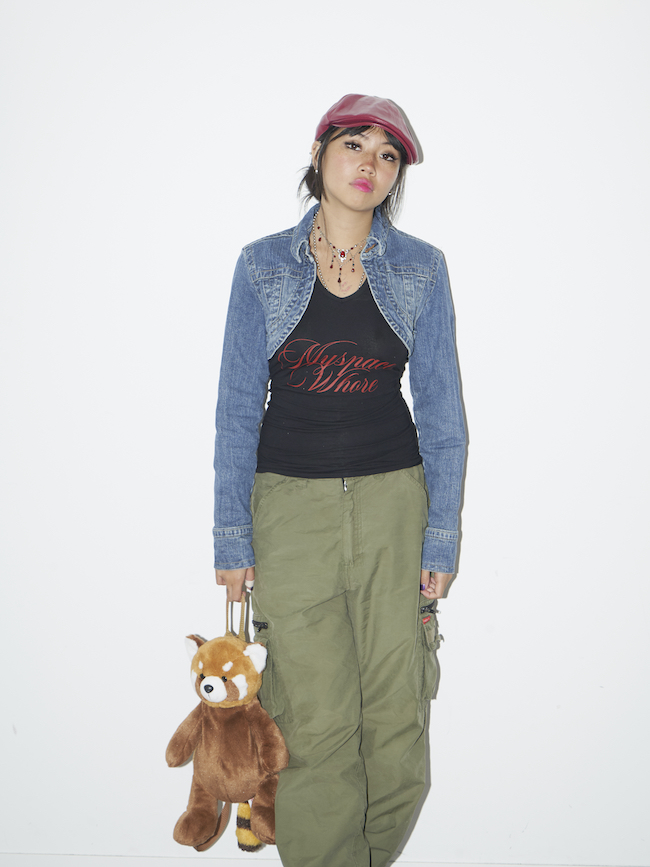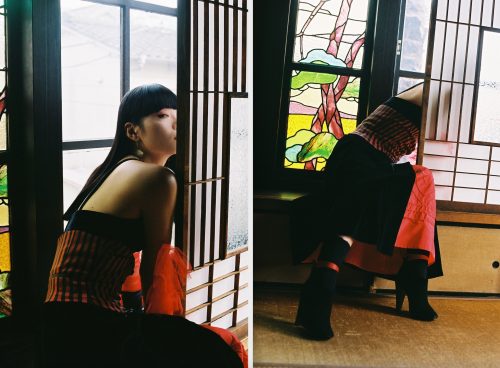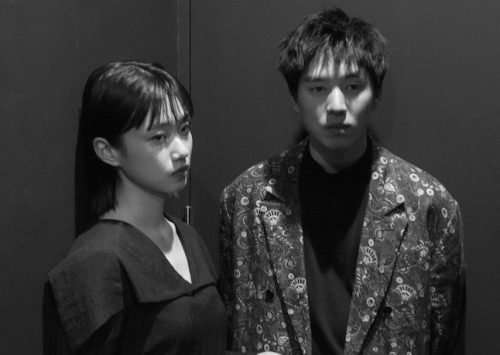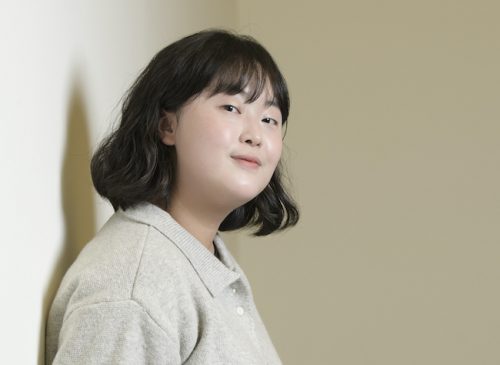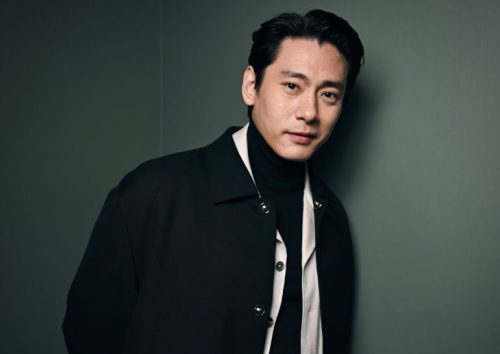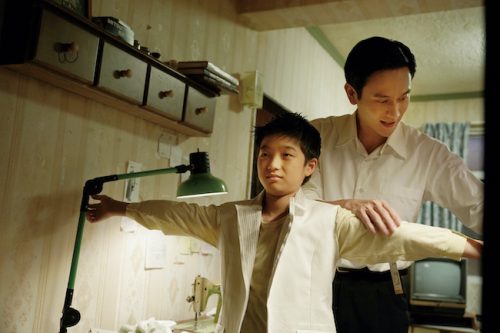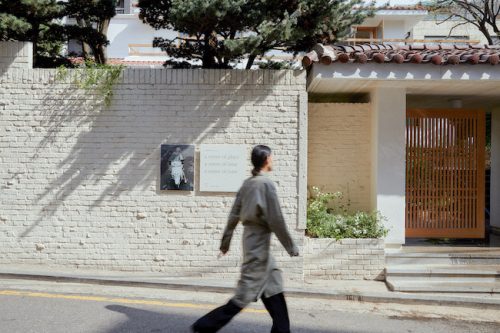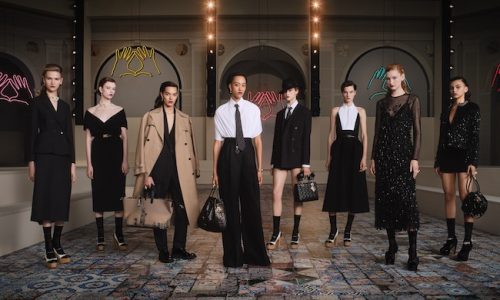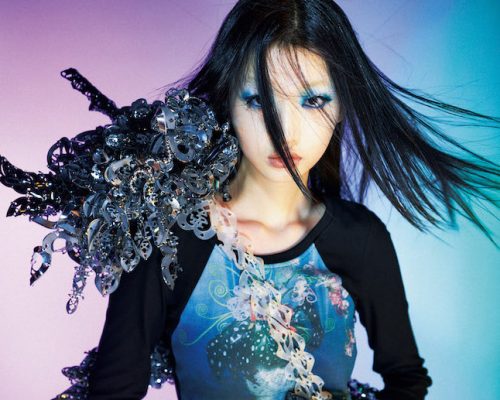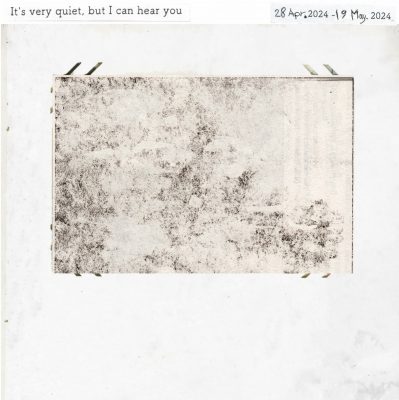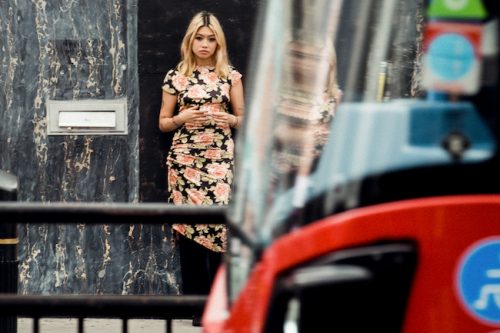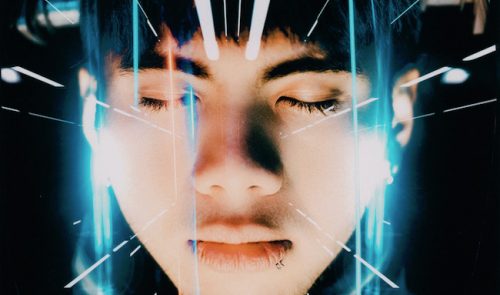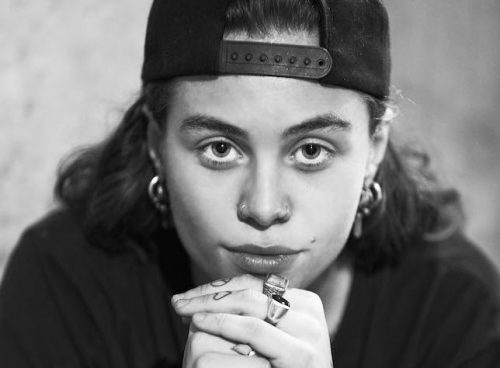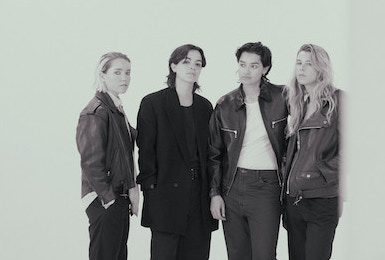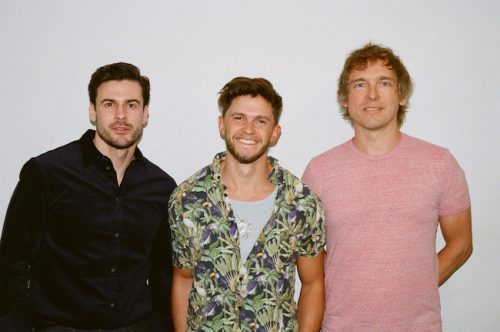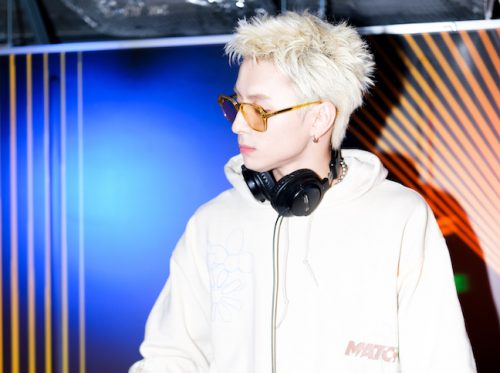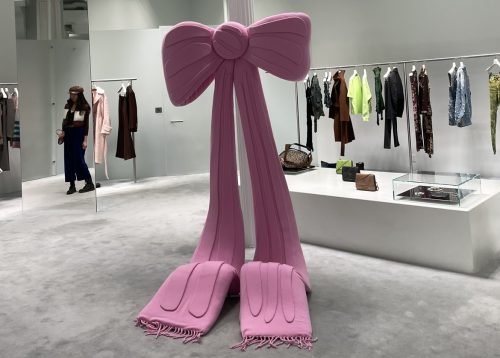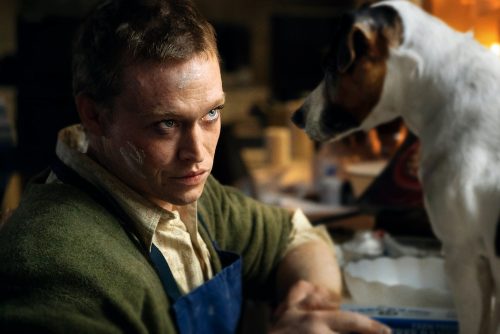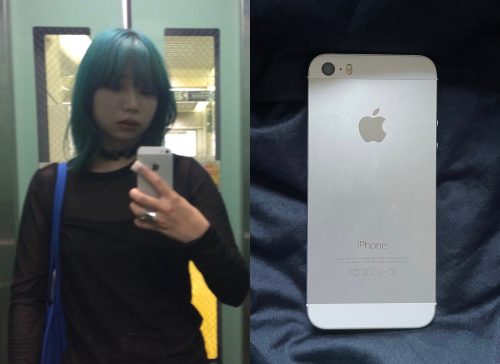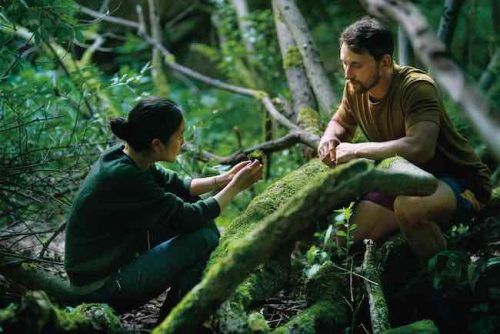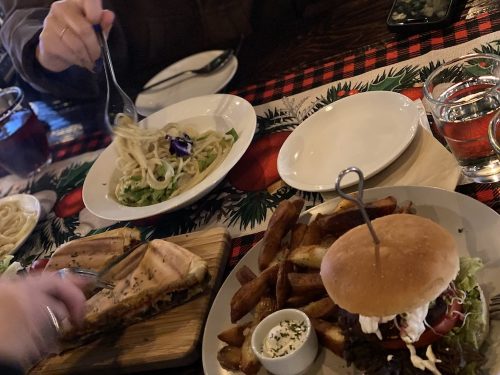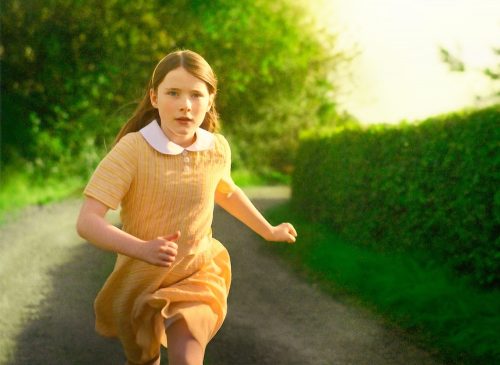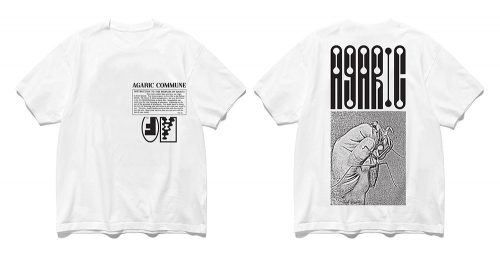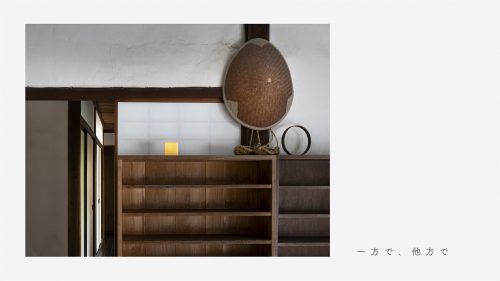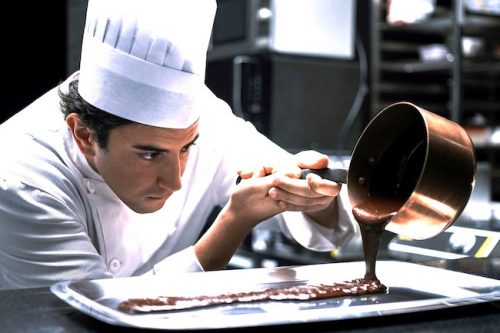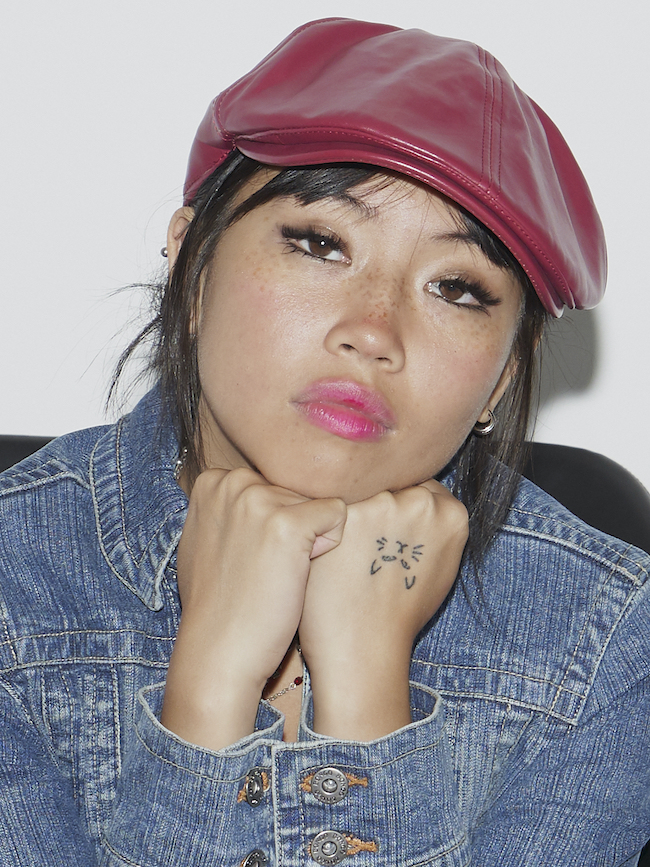
――This is your first time in Japan. How has it been?
Bea : It’s good. It’s almost like living in a movie here. There are so many things to see and there is constant sound, constant noise, and constant music playing in the streets. I think it’s cool. I properly explored the city last night. I went to Donkey!
――In your last interview with us for “Fake it Flowers” you mentioned that going to Japan was like the last piece of the puzzle. You’ve been interested in Japanese culture for a long time.
Bea : For a long time. It kind of inspired the fashion for Fake it Flowers, like the Fruits magazine. I was lucky enough to be shot by the photographer of Fruits Magazine, Shoichi. It has always been an inspiration for fashion and art here. So it’s kind of like finishing the puzzle a little bit. I want to come back though, properly do it, it’s not done yet.
――Your recent photoshoot with The Face magazine seemed like a homage to the Fruits magazine. Was that your idea?
Bea : It wasn’t mine it was The Face’s idea. Shoichi haven’t done a magazine cover in ages so he flew out which was cool.
――How did you get the Fruits magazine in the UK?
Bea : You can’t but you can get it on eBay. I don’t own Fruits magazine. I just follow loads of Instagram accounts that post pictures from that time.
――Similar to the way you were interested in Japanese fashion, now everyone is paying attention to your fashion and make-up. How do you feel about that?
Bea : It’s very weird because I don’t even think about it until someone pointed out that people follow my fashion advice. But I don’t necessarily follow a strict vibe. I just dress for comfort. I feel very appreciated and overwhelmed that people like the way I dress.
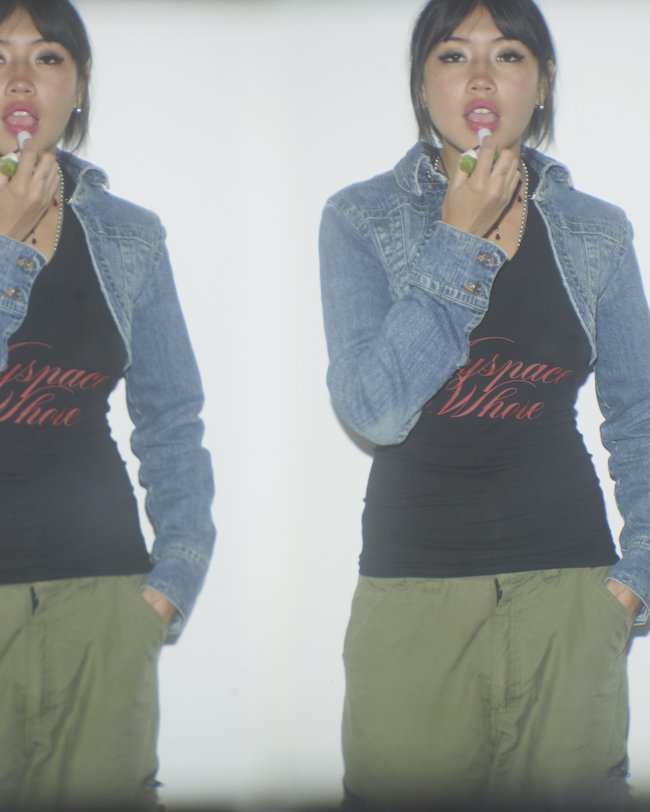
――This new album is more open, friendly and gender-free. You seem to be giving more to the audience in this album. How did this transition happen?
Bea : I think it was growing up, maturing and feeling much freer in terms of the way I write my music. I felt like I had no boundaries this time. Especially doing it over a lockdown felt as if no one was going to listen to this record apart from myself. So I felt like I had no rules, I wasn’t abiding by any rules. It was definitely about becoming a grown woman.
――You said you matured from the previous album. When you compare yourself now to when you wrote your first album, what did you think changed?
Bea : I’m still on the road to self-acceptance but I think I have grown to love myself a bit more. Much more than how I was in the Fake it Flowers era. I love all my old music and I still play it live but at times I felt like I pretending to be someone I wasn’t. It can be something just as simple as dyeing my hair colours or dressing differently. So I think I have grown into myself a little bit more in this record.
――Was there an occasion or a turning point where you came to accept yourself more?
Bea : Age comes in a factor. Learning and experiencing a lot of stuff and going through intense hardships or breakups or being away from home and family. So there are a lot of factors. Especially if you are a musician and you go on tour, I think you are sort of forced to go out a bit more than other people.
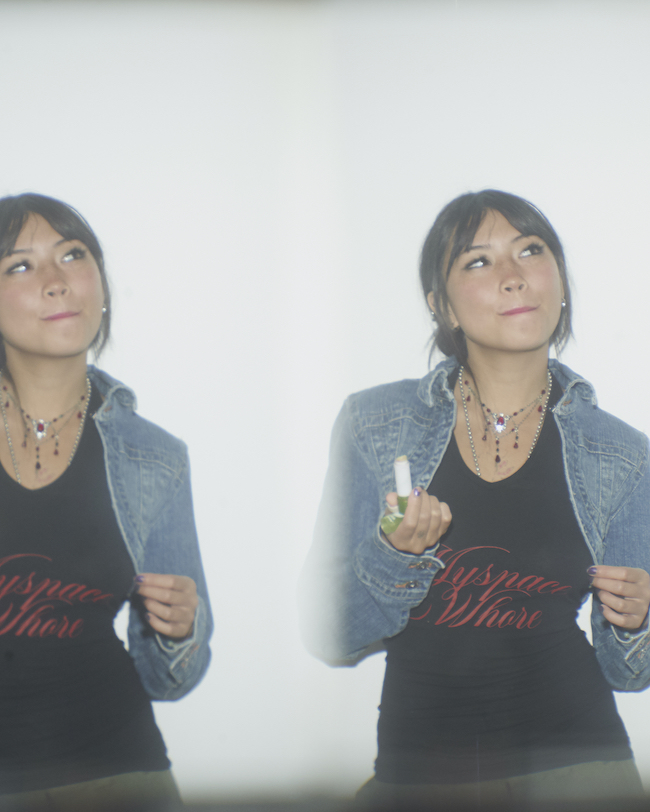
――The first album was very personal and you were scared to release it to the world. What about this new album? Did you feel anything like this at all?
Bea : I always feel it with my music because that’s how I write my music. It’s all very personal. I think what scared me more for Fake it Flowers was that it was about certain individuals, every song was about a person. Every time you do that you get a few messages where people are like the song is about them. At Fake it Flowers I was talking about the past so much and with “Beatopia” I was moving on from it. I was accepting those feelings I had for so long pushed under the rug and forgotten or embarrassed about. Now I can just live with them and accept them, grow from them instead of being tangled in them.
――In this new album, which song do you think will break through?
Bea : For this album I think it was “See you soon” but the first song we wrote for Beatopia was “Tinkerbell is overrated” and I feel that really explains the record. We wanted it to be whimsical, really weird and different. I think that was the stepping stone to what this record was going to be. “See you soon” was like what the record was about and it encapsulates the whole Beatopia.
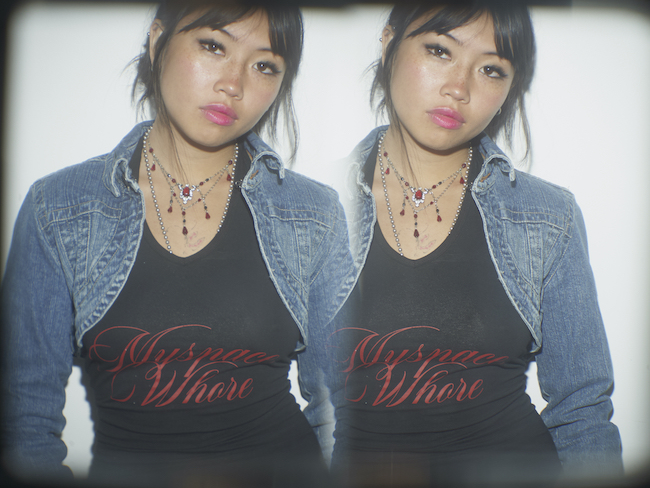
――”Beatopia” was the imaginary escape for you when you experienced hardship as a seven-year-old. Was it hard to face the past?
Bea : It was hard. I think a lot of lockdowns were spent being with my feelings and having nowhere to escape with feelings, no distractions. Having to be in a room and noticing why I have to face these feelings. Although it’s hard I think it’s very necessary and it’s all part of growing up. Sometimes you have to revisit feelings you didn’t understand when you were a kid or feelings you pushed away to be able to move on with your life.
――I’m guessing you learned a lot through lockdown?
Bea : Yes, I learnt a lot and I couldn’t escape my feelings during lockdown because you are stuck in the same place for so long.
――Because of this lockdown, we weren’t able to see your show for Fake it Flowers. It must be upsetting.
Bea : Yea, that would have been cool.
――The last album, Fake it Flowers was about your feelings and emotions when you were fifteen. You wanted this message to reach other fifteen-year-old girls who might be going through the same thing, and remind them that they were not alone. Do whatever you want to do and be free.
What is the message for this album?
Bea : I think it’s embracing growing up and your past instead of using it as an excuse for the way you act in the present day. It’s about learning to move on from things and not hold grudges. I think that was the main message for Beatopia.
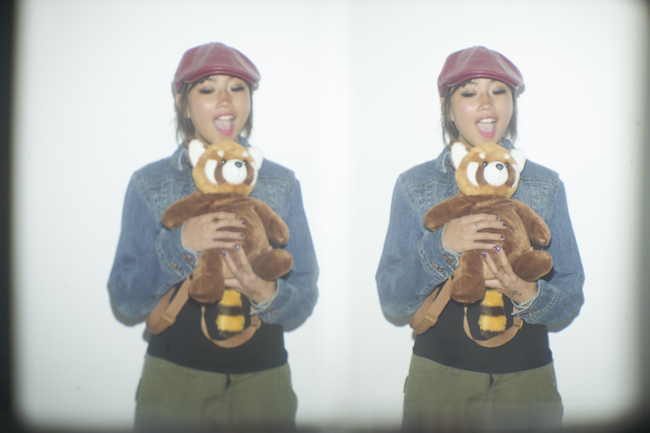
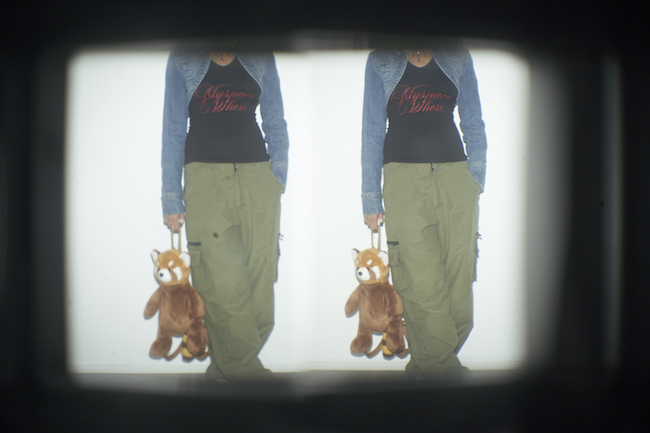
――All of the songs you write are based on your own experiences and feeling. They are all personal. On the other hand, the music is for other people as well. Were you conscious of this connection?
Bea : I think it happened very naturally. When you write such personal music, you are bound to have people relate to what you were talking about. You are talking about real-life things. It is inevitable. At the end of the day, I’m like a twenty-two-year-old girl. I’ve got the same problems as a load of other girls and people so it’s very easy. It makes me feel less alone when they relate to it, as much as it makes them feel less alone.
――When you were seven and came up with Beatopia, or fifteen years old when you made Fake it Flowers. Did you listen to any songs? Was there anything you related to back then?
Bea : Well, not from seven to fifteen. I found the music that I relate to the most when I started making music by myself. When I was eighteen I started listening to bands. Then I found music that related to my life. The song by Lali Puna has lyrics that go, “It’s not the worst I’ve looked, it’s just the most you ever cared”. I think that always stuck with me. I’ve had really bad self-esteem issues so hearing those lyrics and saying them to myself makes me feel much better.
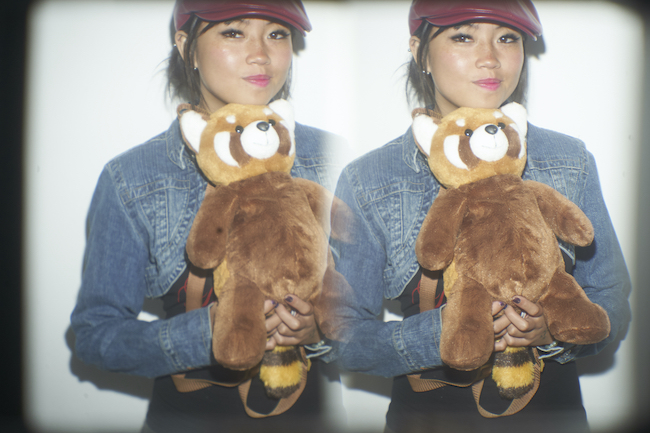
――You are more open to collaborations since your EP with 1975. Other than music, did Matt and George give you any good advice?
Bea : Matt is like a big brother to me and he’s always been one to me. Annoying at times but he is really lovely. One of the biggest pieces of advice he’s given me was when I was going through my breakup. He said, “Because you are so young Bea, you don’t want to maintain something so serious, you want something that makes you happy” and then he compared love to a garden. To keep the garden flourishing, it needs to be maintained. Right now at twenty-two you just want a flourishing garden that is kept alive. It doesn’t need to be watered constantly. I think I have kept that idea of love in my brain.
――Mat himself is an amazing artist and works to deliver social messages at the festivals he performs in. Some of these messages were on gender equality. What do you think about this role as a musician?
Bea : I think it is important for all musicians to speak out about what they believe in, especially if you have the platform and people looking up to you or following you. What is the point of having that many people looking at you without telling them what you believe in, especially if it is something positive and good for society?
――You were a part of an event by 88rising called, Asia Rising forever. You mentioned in our past interview that you were inspired by other Asian artists and wanted to join such a community.
Now with your new album and fashion attention, you are the role model for those with a similar background. What do you think about this situation?
Bea : It makes me feel very happy and proud of myself. Growing up, I didn’t have many people I looked up to that was like me. To be someone for some girl or anyone, makes me feel like everything I’m doing is worth it. Cause that’s what it’s all about.
